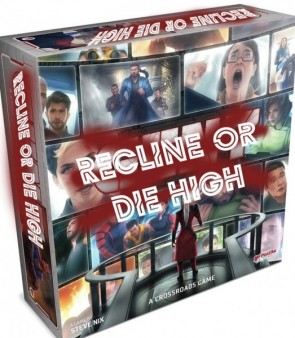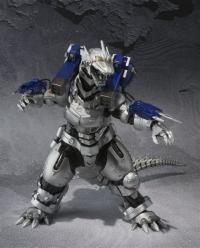[CHAPTER 1] The Ship Is Alive with the Sounds of Sitting
//>>>// Data Lab Deputy Consultant Log 5570-XK7^5789, Stardate 72754.5 //>>>//
Gen7 is one of the most ambitious, forward-thinking games I’ve played in a long time. Eschewing the played-to-death, Star Wars Lite© settings I’ve become accustomed to in my shooty spaceship games, Gen7 instead imagines a future driven by human cooperation and scientific inquiry. Players take on the roles of officers on a generation ship traveling to a distant planet hundreds of years away. Freshly defrosted for a scheduled tour of duty, you must attempt to keep the mission going, even when things start going wrong. As we played through the game’s bespoke seven mission campaign, it became clear that Gen 7 is a labor of love from designer Steve Nix and publisher Plaid Hat Games. It’s also a game I never, ever want to play again.
Gen7 is the long-awaited follow up to Plaid Hat’s first “Crossroads” game, Dead of Winter, a game I still adore dearly. Like in that game, you’ll be rolling dice and allocating them to perform various actions on a shared board, though this time each one represents an industrious, faceless little bureaucrat instead of, say, a blood-soaked beefcake fireman (a clear step down, imho). The games also share the titular crossroads system, where player actions might trigger a random thematic event based on conditions printed on a special deck of cards. Aside from these shared mechanics, the games feel very different--unfortunately, Gen7’s predecessor is superior in almost every conceivable way.
The weird problem of reviewing Gen7 is that the campaign, with all its twisty-turny plot bits, will make or break your experience. I’ll tell you right now, the moment-to-moment gameplay isn’t enough of a selling point on its own--most of your time spent with the game will play out as a generally dull exercise in cooperative problem solving. It feels more than a little like a group project assigned by an endlessly monologuing science teacher. Whatever joy resides in this hundred dollar box is located in the stack of sealed envelopes gently teasing you with their mysteries, or it’s somewhere in the campaign book, whose epic intentions are communicated clearly through the seriousness of its spiral binding.
So, our dilemma: the game’s only worth playing to be surprised by the story, but is it a story worth sticking with and being surprised by? If you’re committed to keeping your experience pristine and totally unsullied, here’s your one sentence answer: probably not, but your mileage may vary. Thanks for joining us; here’s where you get off the ride. For the intrepid reader willing to float further into the vacuum, consider this your first and only SPOILER WARNING (here be monsters)!
Jonathan climbs warily out of his sleep-hatch. The metal bedroom floor is always cold, and the fluffy material of his Pokémon slippers isn’t thick enough to keep the cold from seeping through. What is a Pokémon? he used to wonder. He knows not to ask the question out loud anymore. The first time he muttered it to himself in the shower, CARE-N’s artificial voice boomed, borne from the showerhead speakers: “A Pokémon was a pocket monster on Earth. It was a fiction. It provided the veil of entertainment and the veil of meaning to the lives of people who were going nowhere, unlike us.”
”CARE-N, are your visual receptors on?”
The steam rose silently to the ceiling tiles.
Finally: “Yes.”
”Okay, maybe turn those off, I’ll leave that to you. But...what is a pocket monster?”
“An adjunct creature-form that a higher-statused entity summons from a spheroid—a materialist/metaphysical paradox, since all Pokémon seem to be birthed and similarly undone from the wave of an electromagnetic signal emerging from this same spheroid—the mechanistic explanation is elusive, Jonathan, is what I’m saying—anyway, they emerge from this spheroid to fight a battle with another pocket monster. Then they return to their spheroid, which voids them into unbeing until the next battle.”
“Okay. You’ve given me something to think about, CARE-N.”
“There’s a mole on your head I would like to biopsy tonight.”
He makes his way to Computer Division 3, where he can already see Andy seated in First Seat, hunched toward the scopicscreen, air-typing diligently.
“Morning, Andy.”
Andy grunts. Jonathan looks over Andy’s shoulder.
“Interesting. ‘Crossroads...Plaid Hats….’ Is this that meta-simulation entertainment experience CARE-N keeps insisting we try during our nutrient breaks?”
“That’s right,” someone says to Andy’s right.
“I’m sorry, but I was speaking to Andy,” Jonathan says.
“You should make it clear who you’re speaking to,” someone else says.
The ship is a well of locker room gossip, faceless voices in the steam vying to be heard, to speak deliciously of the lives of others.
Andy finally looks up from his screen.
“I’m actually due for a report on the Gen7 entertainment experience. I’ll update your memory banks with the relevant experience. Do you want to co-chair this assignment with me?”
”Well, actually…” Jonathan feels the ruthless anxiety of always needing to be exactly where he isn’t, of tasks that need completing. He has so much recycling to do, for one, in addition to reports on happiness and heating duct optimization protocols, all due by noon. But the mention of an entertainment experience has him...interested. He looks down at his unknowable Pokémon slippers, and they seem to give him that final push into permission. “Sure, I’ll co-chair this with you, buddy.”
Andy grits his teeth at the word: are they buddies before colleagues? Is any co-chair your friend?
Jonathan sits next to Andy. Data-tubes snake up from his chair, fitting into his dermontological ports. It is a bit uncomfortable admittedly, like pooping backwards, but he feels the sugar-like rush of alien experiences becoming his experiences. Andy chews on a MilkyWay while Jonathan catches up.
“Wow,” Jonathan says. “Now I’m ready to talk about Gen7.”
[CHAPTER 2] Stories Are the First Space Ships or: the Illegal Statue
Jonathan
OK, dear colleague! So if the chief appeal of Gen7 is the story, we need to judge it chiefly as a story. What do good stories do? At one point, a character in a Donald Barthelme story says, “The aim of literature is the creation of a strange object covered with fur which breaks your heart.” Now, I’m a spaceship robotics guy. I don’t know how stories can be covered with fur, so I’m going to assume this Barthelme guy is being metaphorical. But I think he means to say that stories are tactile—furry—and that they communicate lived experiences, objects banging into each other and getting hurt by all that banging. That’s the heartbreak part. I bang, therefore I’m sad. So: does Gen7 show us objects banging around and getting hurt? Does the story ever even begin?
You mentioned in your initial report that Gen7 is an iteration on the “crossroads” mechanic introduced in Dead of Winter. Sometimes, you place your dice in such a way that it “triggers” a “story event.” In our first game, my assistant, Zhang Ling, whose chief descriptor is “bubbly”, discovered an “illegal” sculpture on board the ship. INTRIGUE! What is illegal sculpture? And who decides the laws here? AND did we all agree to place our limits on free-speech to serve some amorphous, greater good? ANDY, I AM ALIVE WITH QUESTIONS!!! The story is furry, it makes my heart race!!
And then...it took 4 more games, totaling 12 hours of play and setup, to “trigger” the next chapter of The Illegal Statue. By that point, so many other wacky things were going on in the ship—including a fungal disease that turned people into neck-exploding zombies—that it felt hilarious to pick this thread back up. Bubbly Ling Continues Her Illegal Statue Investigation In Hallways Streaked With Former Colleague Exploded Gore! Detective Ling’s Bubbliness Is Actually a Dissociative Disorder That Also Protects Her from the Reality of Imminent Death! And other fun titles. Over 7 games, we never found out who made the sculpture, and I imagine the truth is no strange fiction.
I use this as an example to put pressure on the crossroads mechanic: if story is inseparable from your game, why include a mechanic that could potentially deny you access to that story? If the answer is: “Well, you just have to play the game AGAIN!”, I call foul. What is War and Peace’s famous last line? “If you never found out whether or not Prince Andrei discovered the meaning of life, we hope that you go back to the beginning and read again. Enjoy! - The Tolstoy Team.” Sure, Choose Your Own Adventures do work this way, but they sucked even when we were kids.
I haven’t even touched on the quality of the writing here, which is bewilderingly dry, opaque, non-specific. “Someone” is always piping in from the backgrounds of scenes to deliver exposition. In maybe my favorite moment, CARE-N, the ship AI, talked to us while we were showering, and it was genuinely creepy, a moment where the game actually excited the pervert in me--maybe CARE-N will send a robot into the shower to ~seduce~ us into siding with her--but nope, she respectfully stays outside to say, “Trust me, I watch you shower but that’s all.”
Can board games tell stories effectively? Board games are certainly furry—the fetishistic materiality of the hobby is undeniable. There’s a Meeple for any kink. For me, unboxing Root the first time really was an erotic experience (and given the popularity of unboxing videos, relative to reviews, it’s clear that undressing games is more urgent than understanding something deeper and barer about them than their fiddly bits). But can board games fulfill the second part of the Barthelme formula and move us, break our hearts, leave us destroyed where we’re standing (or, in this case, sitting)?
Andy
Fine points, diligent co-worker Jonathan! I think board games can, in fact, both be furry and break our hearts. Or rather, they can give us the right equipment and conditions to break our own hearts, or each other’s. Gen7 is a game that believes deeply in the power of story, but misunderstands completely how board games can tell stories well.
The best board games build stories the way Jigsaw builds a kill room: they create a space, purposefully fill it with a bunch of dangerous and interesting tools, and then lock a few people in and count on human nature to do the rest. Because given the right encouragement, agency, and mechanisms, humans will naturally create great stories--it’s what our brains are programmed to do! Competitive games will spin tales of deviousness, and betrayal, and fierce conflict. Cooperative games will tell stories of camaraderie, and sacrifice, and the fight for control.
Gen7 doesn’t really tell any of these stories, except (in our case) the shared struggle between a few hapless players and the game itself. This is because Gen7 makes the mistake of believing that its story is bound up in a novel’s worth of bad prose splashed on cards and the campaign book, or in the handful of consequential choices players get to make in the course of a fifteen-odd hour campaign.
Gen7 uses bits of text and a few sealed envelopes as a carrot to drag curious players through hours of gameplay that never rises above the level of mandatory busywork. And it’s true--sometimes these end-of-session revelations are pretty exciting! It’s fun to flip the pages to a new chapter or uncover a brand new game-altering mechanism. But by doling out its narrative rewards in this way, Gen7 guarantees that its best moments will always happen while you’re not playing the game. It wants you to believe that you’re intrepid space officers facing terrifying challenges on the frontier of human experience, but then it asks you to spend your time doing the science fiction equivalent of making copies and sending emails. How are players supposed to resolve this gap between what we were promised and what was delivered?
[CHAPTER 3] Ludonarrative Dissonance or: Where Is Darth Vader’s Office?
Jonathan
There’s a term from modern warfare called moral injury, where an act you commit goes against your sense of right and wrong. This concept could be useful for storytellers, because so many stories are about people who believe themselves to be good behaving badly. Can a cooperative game like Gen7 explore moral injury, forcing me to do things that go against my moral code?
Maybe it’s time we talk about gaps, dear First Chair? Scholars call the gap I think you’re talking about, that playful void, ludonarrative dissonance—that is, the dissonance between the story being told and the story the gameplay tells. This dissonance is the reason I hated….**dermonotological tubes firing up sound**....Red Dead Redemption 2: Arthur Morgan, my man, my vessel, shoots thousands of people in the head, and I’m supposed to still love the rascal? I didn’t want to shoot anybody in the head, but the game gave me no options besides shoot first and feel bad later. But what if...what if I run around that barn and try to sneak up on them cowpokes through the tall wheat and, shucks, just knock the fellars out? Ain’t a shame in a purple shiner instead of a coffin-liner, I reckon. But as I turn from the obvious path of headshots and casual bloodguilt, the screen is lanced with red and black and white, and my character pitches forward, in gruesome slow motion, as if he has had a heart attack of conscience. I’m dead from moral injury. Do it again, the game is saying, but this time aim higher (head-level).
Gen7 doesn’t rise, so to speak, to the level of depravity of RDR2, but it fails to elaborate on the moral crises it sets up. Several chapters in, we blow a hole in the wall of our habitat to discover the ship has many other identical habitats, hidden from each other. And the people in this new habitat, called the "Outsiders", are desperate, hungry, in need of resources! They rush into our home. They begin to “steal” our goods—represented as microchips, bolts and nuts, and chemistry beakers. These goods are stand-ins for bigger concepts: information/technology, physical infrastructure, health and science. So far so good: the game is operating as a parable for refugee crises and geopolitical privilege, for the background coming to occupy the foreground. Except: as the refugees begin to fill our halls (and take our seats), and sometimes fire at us with their weapons, with us firing back with our weapons, and as our resources shift back and forth, the corporatocratic drudgery of life goes on: CARE-N needs this Happiness Survey completed ASAP. And, unbelievably, the refugee you just fired a gun at will lend a hand, or, in this case, a die, to help fill out said Happiness Survey. You’d need at least five cheeks to turn to get where that refugee gets, but the game isn’t invested in the friction of the moral crises it sets up. The desperation of our situation becomes quotidian, alarmingly bureaucratic, Kafkaesque without the rich and knowing ironies of Kafka. Imagine The Metamorphosis, the Samsas in a mortal and moral struggle to go on living with a giant, incomprehensibly clicking beetle that has replaced their son, sometimes stopping to let this disgusting beetle leaving slime wherever he crawls help them fill out their tax forms.
We haven’t even brought up the immediate dissonances the box itself presents: as the narrative “gathers steam”, we start cracking jokes about the dramatic box-art, none of which after 10 hours of play has come to pass. The woman pounding the glass and screaming--is it just from the point of view of a MilkyWay, stuck in the coils of a vending machine?
Would good writing have saved this game, Andy? Is that the fix? Board game designers: HIRE WRITERS! Or is it a problem of tired worker placement mechanics smushed with a tired story that has almost nothing to do with those mechanics? Should board games that want to tell stories, to use another analogy, stick to the kind of opaque, allusive “storytelling” of the Dark Souls series, which eschews narration, characters, and scenes for environments and moods?
Andy
Dissonance, thy name is Gen7, a game always at war with itself. Better writing certainly would have helped this experience be more something, but I don’t think it would fix the problems at its heart. Nor do I think embracing environmental or aesthetic storytelling would elevate the game (though given the blank slate this kind of setting offers, the absolute sterility of Gen7’s art and components is a little baffling).
Ultimately, tabletop gaming is a character-driven medium, and these characters are always the players sitting around the table--there’s no truly worthwhile story that can be told outside of the little dramas sparked between living minds. The games with the best “story” are the ones that use their mechanics to put players in new and exciting relationships with each other, encouraging them to act in ways they never would IRL. I’m thinking about games like Sons of Anarchy, which pressures folks into behaving like vicious, conniving crimelords, or Black Orchestra, which turns players into furtive, paranoid conspirators. They don’t succeed because they’ve got the best prose or the most excellent card art, but because they understand how to use their rules to manipulate people into having bold, exciting interactions with each other.
This is why Gen7 feels like such a step backward from Dead of Winter. In DoW, even the most quotidian action is laced with an undercurrent of suspicion and fear--you never know what the person to your left or right is hiding, but you can always be certain they’re hiding something. Gen7 keeps a few elements of its predecessor, but completely neuters them by removing the smoldering human engine powering the whole experience. Instead of a delicate web of trust and betrayal, Gen7 creates an atmosphere of obnoxious one-upmanship, asking players who have no real reason to compete with each other to act like feuding teacher’s pets, frantically raising their hands in the hopes that they’ll be rewarded by some faceless authority.
We joked during our campaign that this game might have been perfect if, instead of trying for some sort of highbrow SF experience, the creators had managed to land the Office Space license. Because ultimately, this is a game about the crushing monotony of pointless tasks, the petty in-fighting of idiots, and the ever-present promise of future drudgery. I remember being kind of charmed after our first session, assuming that the designer made it intentionally boring, the better to surprise us with the real game somewhere down the line. Little did I know, the true horror in Gen7 lies not in space rebellion, or space viruses, or angry space robots, but in the growing awareness that no matter how many envelopes we open or pages we flip in the campaign book, this game is not going to get any better.
Jonathan
You’re right to think about retheming as an emergency fix--reskin this as The Office: the Game! and you might have something brilliant. The Michael Scott die is 8-sided, all zeroes.
I had a teacher years ago who said that the imitative fallacy is so seductive for writers, but that we have to avoid it at all costs. A story about boredom, she said, couldn’t be boring itself. David Foster Wallace wrestled with the imitative fallacy, and there’s been a lot of armchair psychoanalysis of whether or not failing to finish The Pale King led Wallace to kill himself--in trying to convey boredom at even the atomic level of story, in the arrangement of his words, the punctuation, the rhythms of his sentences, he realized nobody, including the writer, would want to keep up. Wallace thought all experiences were worth capturing, even those that don’t lend themselves to story.
But are all experiences worth playing? Can a game about bureaucratic tedium be fun--or, if not fun, compelling? Possibly: Papers, Please, created by Lucas Pope, is a computer game where you play an unnamed border agent in a Soviet-bloc state. The goal of the game is to process the paperwork of people transiting into your country--and sometimes their paperwork is falsified. A husband approaches your window, and his papers are all in order. His wife steps up to your window next, and, wait, the name of the country is misspelled on her passport’s second page, and her birth date doesn’t match the date on her birth certificate. You, the agent, have to decide: let the wife pass, and risk being docked pay by your managers for the mistake, or refuse the wife entry and effectively separate the couple. Are we having fun? Papers, Please isn’t fun in any easy, effortless sense; much of the game’s time is spent comparing paperwork handed to you against official examples of that same paperwork in a border agent encyclopedia. But in its compounding of the human suffering you see at your border window, and the strain of keeping your paperwork in order (one aspect of the game is simply keeping your desk space tidy), and the spiraling question of how you’re supposed to keep your own family fed (when you get docked pay, little Alyosha doesn’t eat his borscht that night), Papers, Please shows how games can tell stories that risk boredom and tedium as they break our hearts.
Gen7, on the other hand--
CARE-N
Jonathan? Andy?
Andy & Jonathan
Yes?
CARE-N
The Happiness Survey is due at noon.
Jonathan
Oh shoot. Sorry, CARE-N! I’ll get right on that after I finish here--
CARE-N
And one of the Outsiders slipped into a recycling machine in Power Division 2. There is a lot of blood, and the violence is recycling itself.
Andy
Fuck. Poor guy. But can’t you send a robot?
CARE-N
There was a fire in the Robotics Division. It has lost power. Life Support Systems have been rerouted to restore functionality. Emergency decompression and vacuum purge protocols have been activated.
Jonathan & Andy
My god. Jill, and Brody, and Rakan and--
CARE-N
Dying currently, yes. Correction: Brody is already dead. Jill not yet. Rakan in five, four...
Jonathan & Andy
My god. [Three] Oh my god. [Two] Why didn’t you tell us that [One] --my god...
CARE-N
Andy?...Jonathan?
Jonathan & Andy
(Sniffling) ...W-w-what?
CARE-N
That Happiness Survey won’t just populate itself.
THE END
Aside: I Sing a Song of Jed
It’s worth noting that Jonathan and I played through this game for the purposes of reviewing it--truth be told, if this was simply a leisure activity, we would have given up after session two. But we felt both emboldened and ennobled by our critical decree and were committed to getting the facts to you, dear reader. This was not the case for Jed, our third player and stalwart companion. Jed didn’t have to play the game at all, but he kept coming back week after week, even after it became clear early on that this was Not a Good Game. But Jed, powered by nothing more than friendship and a spirit of good-natured generosity, would not be deterred. And for this, I sing a song of thee, oh Jed, thou Princely Paragon, thou Rock of the Pioneer Valley.
Appendix of Alternate Titles
Sit On It
Seat Trip
Seat Wars
Hot Hot Seat
Sea7
Space Report
Recline or Die High
 Games
Games How to resolve AdBlock issue?
How to resolve AdBlock issue? 























